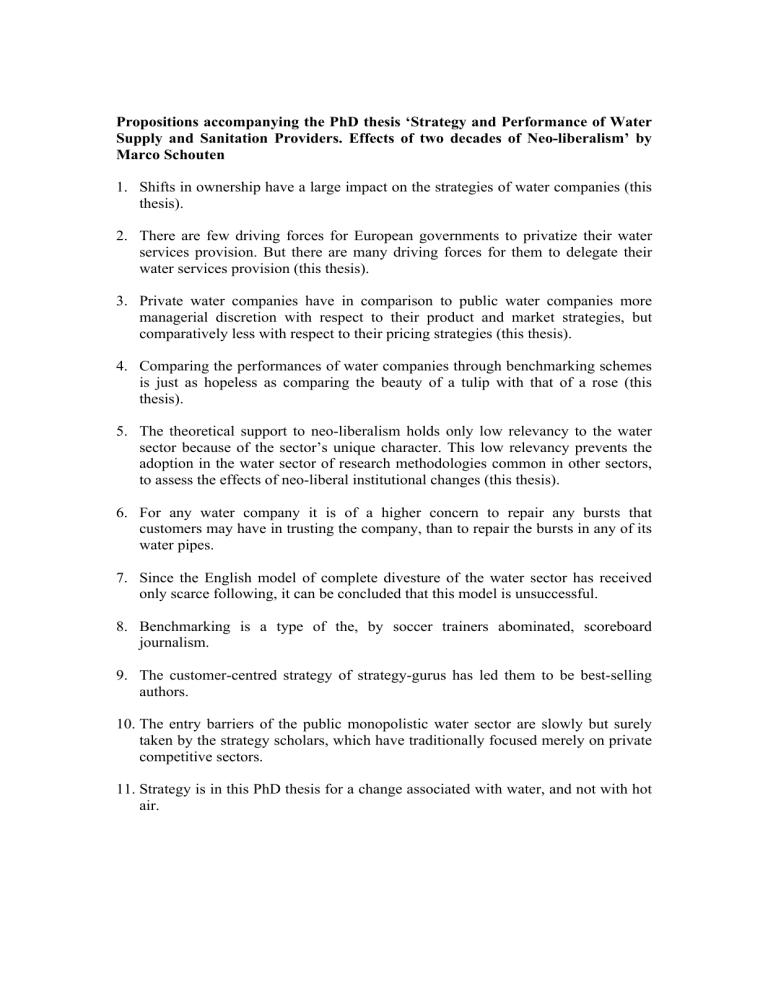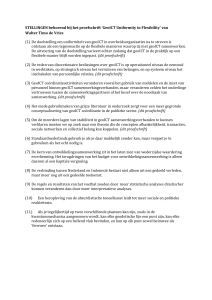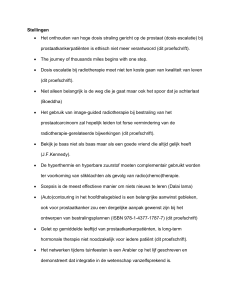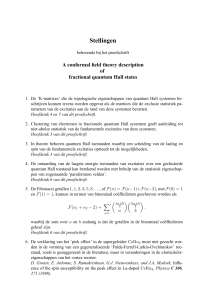
Propositions accompanying the PhD thesis ‘Strategy and Performance of Water
Supply and Sanitation Providers. Effects of two decades of Neo-liberalism’ by
Marco Schouten
1. Shifts in ownership have a large impact on the strategies of water companies (this
thesis).
2. There are few driving forces for European governments to privatize their water
services provision. But there are many driving forces for them to delegate their
water services provision (this thesis).
3. Private water companies have in comparison to public water companies more
managerial discretion with respect to their product and market strategies, but
comparatively less with respect to their pricing strategies (this thesis).
4. Comparing the performances of water companies through benchmarking schemes
is just as hopeless as comparing the beauty of a tulip with that of a rose (this
thesis).
5. The theoretical support to neo-liberalism holds only low relevancy to the water
sector because of the sector’s unique character. This low relevancy prevents the
adoption in the water sector of research methodologies common in other sectors,
to assess the effects of neo-liberal institutional changes (this thesis).
6. For any water company it is of a higher concern to repair any bursts that
customers may have in trusting the company, than to repair the bursts in any of its
water pipes.
7. Since the English model of complete divesture of the water sector has received
only scarce following, it can be concluded that this model is unsuccessful.
8. Benchmarking is a type of the, by soccer trainers abominated, scoreboard
journalism.
9. The customer-centred strategy of strategy-gurus has led them to be best-selling
authors.
10. The entry barriers of the public monopolistic water sector are slowly but surely
taken by the strategy scholars, which have traditionally focused merely on private
competitive sectors.
11. Strategy is in this PhD thesis for a change associated with water, and not with hot
air.
Stellingen behorende bij het proefschrift “Strategy and performance of water
supply and sanitation providers. Effects of two decades of neo-liberalism” door
Marco Schouten
1. Eigendomsverhoudingen hebben een grote invloed op de strategieën van
waterbedrijven (dit proefschrift).
2. Overheden in Europa staan níet onder druk om hun watervoorziening te
privatiseren, maar wél om het te delegeren (dit proefschrift).
3. Private waterbedrijven hebben ten opzichte van hun publieke collega’s een grotere
vrijheid van handelen in het bepalen van welke produkten ze aan welke klanten
willen leveren; echter hun vrijheid is meer beperkt in het vaststellen van hoeveel
ze voor hun produkten mogen vragen (dit proefschrift).
4. Het vergelijken van de prestaties van waterbedrijven door middel van
benchmarking is net zulk onbegonnen werk als het vergelijken van de schoonheid
van een tulp met een roos (dit proefschrift).
5. De onderliggende theorieën van het neoliberalisme zijn voor de water sector
slechts in beperkte mate relevant vanwege het unieke karakter van deze sector. De
beperkte relevantie impliceert dat de geëigende onderzoeksmethoden die in andere
sectoren gangbaar zijn om de waarde van neoliberale institutionele veranderingen
te bepalen ook slechts in beperkte mate toegepast kunnen worden (dit
proefschrift).
6. Voor een waterbedrijf is een vertrouwensbreuk met een klant erger dan een breuk
in een waterleiding.
7. Uit het gebrek aan navolging in de afgelopen 20 jaar van het Engelse model van
volledige privatisering van de watervoorziening kan geconcludeerd worden dat dit
model geen succes is.
8. Benchmarking is een vorm van de door voetbaltrainers verafschuwde scoreboardjournalistiek.
9. Het centraal stellen van de klant door strategie-goeroes leidt tot hoge
verkoopcijfers van hun boeken.
10. De barrières van de publieke monopolistische watersector worden langzaam maar
zeker overwonnen door de van origine op concurrentie gefocuste strategieonderzoekers.
11. Dit proefschrift brengt voor de verandering strategie niet in verband met gebakken
lucht, maar met water.












